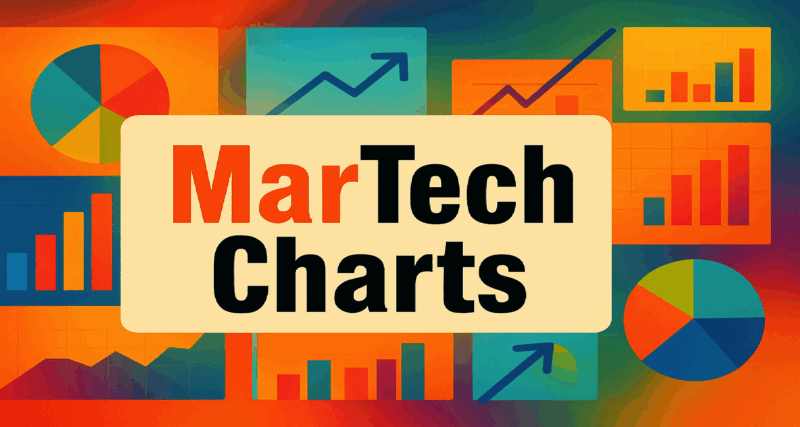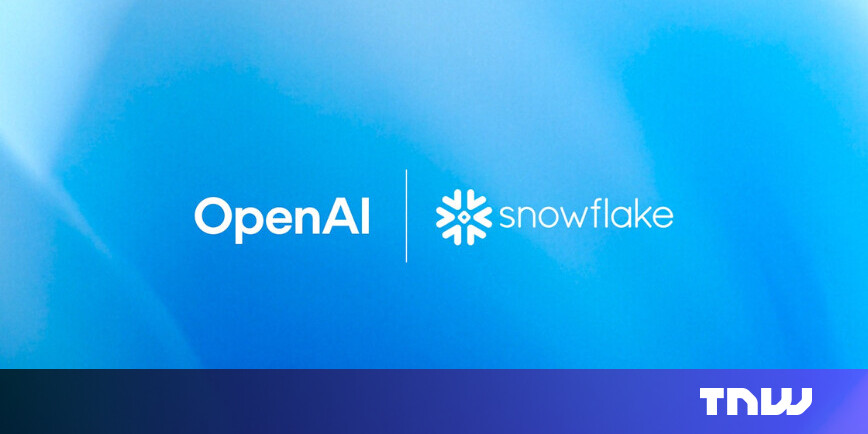#enterprise-ai
#enterprise-ai
[ follow ]
#data-governance #openai #anthropic #ai-governance #ai-agents #ai-infrastructure #generative-ai #agentic-ai
Artificial intelligence
fromenglish.elpais.com
1 day agoClaude, the ChatGPT rival shaking up AI and software: What it is and why it matters
Claude is a concise Anthropic AI chatbot trained for specific enterprise tasks, notably legal assistance, that caused major market reactions after a legal-capability update.
Artificial intelligence
fromFortune
3 days agoHow HPE's CFO used AI to transform the 100-slide Monday meeting her team spent all week preparing for | Fortune
HPE replaced manual finance reporting with an AI platform ('Alfred') that cut reporting cycle time ~40% and processing costs ≥25% while enabling insight-driven decisions.
fromFortune
5 days agoSanofi CEO: The enterprise AI shift will reshape pharma in 2026 | Fortune
At Sanofi, AI has shifted from experimentation to becoming a vital part of our infrastructure. It now powers our R&D decisions, our supply chain and manufacturing processes, and most importantly how we discover and develop medicines. All businesses that have implemented AI in an impactful way face challenges, such as skills gaps and uncertainty, but you move beyond that by embedding AI deeply into teams and systems. This enables AI to become a key, reliable source of sustained productivity and innovation.
Medicine
fromFast Company
1 week agoAre LTMs the next LLMs? This new type of AI can do what large-language models can't
A major difference between LLMs and LTMs is the type of data they're able to synthesize and use. LLMs use unstructured data-think text, social media posts, emails, etc. LTMs, on the other hand, can extract information or insights from structured data, which could be contained in tables, for instance. Since many enterprises rely on structured data, often contained in spreadsheets, to run their operations, LTMs could have an immediate use case for many organizations.
Artificial intelligence
fromNextgov.com
1 week agoDOD's AI acceleration strategy
According to the Secretary of Defense Pete Hegseth's memorandum on the Strategy, this AI-first status is to be achieved through four broad aims: Incentivizing internal DOD experimentation with AI models. Identifying and eliminating bureaucratic obstacles in the way of model integration. Focusing the U.S.'s military investment to shore up the U.S.'s "asymmetric advantages" in areas including AI computing, model innovation, entrepreneurial dynamism, capital markets, and operational data.
Artificial intelligence
Artificial intelligence
fromFast Company
2 weeks agoAnthropic cofounder Daniela Amodei says trusted enterprise AI will transcend the hype cycle
Anthropic prioritizes trust and safety to deploy Claude as enterprise infrastructure in regulated industries like healthcare, emphasizing HIPAA-ready systems and human-in-the-loop workflows.
Startup companies
fromTechCrunch
3 weeks agoLegal AI giant Harvey acquires Hexus as competition heats up in legal tech | TechCrunch
Harvey acquired Hexus to accelerate enterprise AI tool development, expand engineering teams, and strengthen its competitive position amid rapid valuation growth and global client expansion.
fromFast Company
3 weeks agoInside the founder factory known as Palantir, America's most polarizing company
"With any person, company, or concept, the general public really only has space in their head for one characteristic of it," says Palantir alum Marc Frankel, cofounder, board member, and former CEO of Manifest, which creates software and AI "bill of materials"-think ingredient labels for critical software. "Biden: old. AI: scary. Palantir: secretive." Frankel worked at Palantir from 2013 to 2018,
Business
Venture
fromTechCrunch
3 weeks agoOpenAI's former sales leader joins VC firm Acrew: OpenAI taught her where startups can build a 'moat' | TechCrunch
Aliisa Rosenthal joined Acrew Capital as a general partner to invest in and scale enterprise AI startups using specialization and persistent context-driven moats.
Artificial intelligence
fromZDNET
3 weeks agoStuck in AI pilot mode? IBM has a solution to help you scale - without ripping everything up
IBM Enterprise Advantage combines platform and consulting to integrate, scale, and deploy enterprise AI atop existing clouds, models, and infrastructures without replacing core systems.
fromComputerworld
3 weeks agoServiceNow deal will see it embed OpenAI models into its AI Platform
to break through language barriers and offer more natural interactions. With the latest OpenAI models including GPT-5.2, ServiceNow will unlock a new class of AI-powered automation for the world's largest companies.
Artificial intelligence
fromFortune
3 weeks agoAt Davos, AI hype gives way to focus on ROI | Fortune
The promenade in this ski town turns into a tech trade show floor at WEF time, with the logos of prominent software companies and consulting firms plastered to shopfronts and signage touting various AI products. But while last year's Davos was dominated by hype around AI agents and overwrought hand-wringing that the debut of DeepSeek's R1 model, which happened during 2025's WEF, could mean the capital-intensive plans of the U.S. AI companies were for naught, this year's AI discussions seem more sober and grounded.
Artificial intelligence
fromAlleywatch
3 weeks agoFlip CX Raises $20M to Expand AI That Automates 90% of Customer Service Calls
As enterprise AI spending surges past $100B annually, a critical divide has emerged: while billions flow into horizontal AI platforms promising to solve everything, enterprises deploying these tools face a harsh reality check when their generalist agents struggle with the complexity of real-world operations. The disconnect is particularly acute in customer service, where voice remains the highest-stakes channel where one wrong answer can cost thousands in revenue or irreparably damage customer relationships.
Artificial intelligence
Artificial intelligence
fromComputerWeekly.com
1 month agoCutting through the noise: SaaS accelerators vs. enterprise AI | Computer Weekly
Choose SaaS AI accelerators for fast automation and measurable gains; use enterprise AI when trusted, verifiable, network-contained outputs are required for cross-team or sensitive-data work.
fromthenewstack.io
1 month agoWhy Most APIs Fail in AI Systems and How To Fix It
Over the past few years, I've reviewed thousands of APIs across startups, enterprises and global platforms. Almost all shipped OpenAPI documents. On paper, they should be well-defined and interoperable. In practice, most fail when consumed predictably by AI systems. They were designed for human readers, not machines that need to reason, plan and safely execute actions. When APIs are ambiguous, inconsistent or structurally unreliable, AI systems struggle or fail outright.
Software development
fromTechCrunch
1 month agoThe 32 top enterprise tech startups from Disrupt Startup Battlefield | TechCrunch
Every year, TechCrunch's Startup Battlefield pitch contest draws thousands of applicants. We whittle those applications down to the top 200 contenders, and of them, the top 20 compete on the big stage to become the winner, taking home the Startup Battlefield Cup and a cash prize of $100,000. But the remaining 180 startups all blew us away as well in their respective categories and compete in their own pitch competition.
Startup companies
Artificial intelligence
fromFortune
1 month agoI pioneered machine teaching at Microsoft. Building AI agents is like building a basketball team, not drafting a player | Fortune
Agent practice—structured, repeated training of multi-agent teams—is essential for enterprises to achieve reliable autonomous systems beyond testing and demos.
Artificial intelligence
fromFortune
1 month agoThe real AI revolution is going from the information era to the 'intelligence era,' Paypal senior VP says. That means your focus should be tokens | Fortune
AI is replacing the information era with an intelligence era where AI generates data, enabling AI factories for workplace automation and productivity.
fromBusiness Insider
1 month agoAI CEOs say automation with AI is harder than it looks
Jain said he had tried to automate internal workflows at Glean, including an effort to use AI to automatically identify employees' top priorities for the week and document them for leadership. "It has all the context inside the company to make it happen," said Jain, adding that he thought AI would "magically" do the work. The idea seemed simple, but it hasn't worked.
Artificial intelligence
fromTheregister
2 months agoNot enough good American open models? Nvidia wants to help
For many, enterprise AI adoption depends on the availability of high-quality open-weights models. Exposing sensitive customer data or hard-fought intellectual property to APIs so you can use closed models like ChatGPT is a non-starter. Outside of Chinese AI labs, the few open-weights models available today don't compare favorably to the proprietary models from the likes of OpenAI or Anthropic. This isn't just a problem for enterprise adoption; it's a roadblock to Nvidia's agentic AI vision that the GPU giant is keen to clear.
Artificial intelligence
fromInfoWorld
2 months agoBefore you build your first enterprise AI app
It is becoming increasingly difficult to separate the signal from the noise in the world of artificial intelligence. Every day brings a new benchmark, a new "state-of-the-art" model, or a new claim that yesterday's architecture is obsolete. For developers tasked with building their first AI application, particularly within a larger enterprise, the sheer volume of announcements creates a paralysis of choice.
Artificial intelligence
fromFortune
2 months agoBusiness leaders make their 2026 predictions for the Magnificent 7 | Fortune
They know all too well how Alphabet, Amazon, Apple, Meta, Microsoft, Nvidia and Tesla have delivered more than half of the S&P 500's gains in recent years, setting a high bar for everyone else to clear. But things change: One minute, Alphabet is behind the curve on AI and then Google's latest Gemini launch sparked a 'Code Red' from ChatGPT's Sam Altman.
Artificial intelligence
fromFortune
2 months agoExclusive: Glean hits $200 million ARR, up from $100 million nine months back | Fortune
"What's driving all of this is the awareness from CEOs and executives that this is the time to invest in AI," Jain said in an exclusive interview before the conference. "Everybody has been looking for a safe, secure, more appropriate version of ChatGPT for their employees. And we bring the capabilities that ChatGPT brings to consumers to business users, and in the context of their company."
Artificial intelligence
[ Load more ]












































